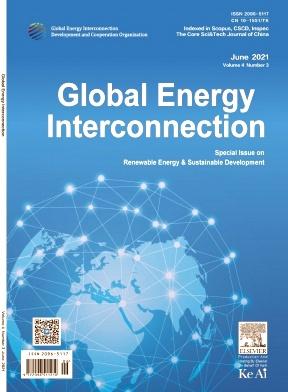Non-intrusive temperature rise fault-identification of distribution cabinet based on tensor block-matching
Abstract
In this study, a novel non-intrusive temperature rise fault-identification method for a distribution cabinet based on tensor block-matching is proposed. Two-stage data repair is used to reconstruct the temperature-field information to support the demand for temperature rise fault-identification of non-intrusive distribution cabinets. In the coarse-repair stage, this method is based on the outside temperature information of the distribution cabinet, using tensor block-matching technology to search for an appropriate tensor block in the temperature-field tensor dictionary, filling the target space area from the outside to the inside, and realizing the reconstruction of the three-dimensional temperature field inside the distribution cabinet. In the fine-repair stage, tensor super-resolution technology is used to fill the temperature field obtained from coarse repair to realize the smoothing of the temperature-field information inside the distribution cabinet. Non-intrusive temperature rise fault-identification is realized by setting clustering rules and temperature thresholds to compare the location of the heat source with the location of the distribution cabinet components. The simulation results show that the temperature- field reconstruction error is reduced by 82.42% compared with the traditional technology, and the temperature rise fault- identification accuracy is greater than 86%, verifying the feasibility and effectiveness of the temperature-field reconstruction and temperature rise fault-identification.

 求助内容:
求助内容: 应助结果提醒方式:
应助结果提醒方式:


